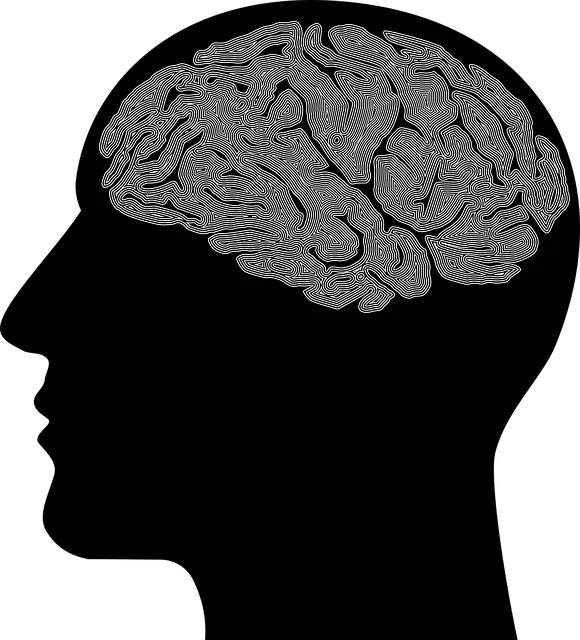The Aurora Kaiser Permanente mental health center prioritizes patient safety through comprehensive risk assessment and management. By systematically evaluating risks, they implement preventive measures for conditions like depression, fostering a safe environment. Continuous learning, mindfulness meditation, and open communication strategies empower staff to navigate complex cases confidently, enhancing job satisfaction and patient care quality. Through regular peer reviews, case studies, and collaborative discussions, the center continuously improves, cultivating a culture of resilience, self-awareness, and optimal well-being among professionals.
In the dynamic landscape of mental healthcare, risk assessment is an indispensable tool for ensuring patient safety at institutions like the Aurora Kaiser Permanente Mental Health Center. This comprehensive guide delves into the intricacies of risk assessment practices within mental health settings, highlighting key risks faced by professionals. We explore effective risk management strategies and emphasize the importance of continuous monitoring for enhanced patient care, drawing from the unique context of the Aurora Kaiser Permanente mental health center.
- Understanding Risk Assessment in Mental Health Practices
- Key Risks Faced by Aurora Kaiser Permanente Mental Health Center Professionals
- Implementing Effective Risk Management Strategies
- Continuous Monitoring and Improvement for Enhanced Patient Safety
Understanding Risk Assessment in Mental Health Practices

In the realm of mental health care, risk assessment is a cornerstone for ensuring patient safety and well-being, particularly at esteemed facilities like the Aurora Kaiser Permanente mental health center. It involves a comprehensive analysis of various factors that may pose risks to both patients and healthcare providers. By employing structured tools and professional judgment, mental health professionals can identify potential hazards early on, enabling them to implement preventive measures. This proactive approach is crucial in mitigating risks associated with conditions such as depression prevention, as it allows for timely interventions and emotional well-being promotion techniques.
At the Aurora Kaiser Permanente center, risk assessment forms an integral part of clinical practice, fostering a safe and supportive environment. Regular reviews help identify patterns and trends that may indicate individual or systemic issues, including burnout prevention. By integrating these assessments into daily operations, the center can enhance its ability to address emerging challenges, thereby optimizing patient outcomes and professional satisfaction.
Key Risks Faced by Aurora Kaiser Permanente Mental Health Center Professionals

The Aurora Kaiser Permanente Mental Health Center professionals face a unique blend of challenges that demand both resilience and specialized skillsets. One key risk lies in balancing patient needs with self-care. The emotional demands of their work can lead to burnout, making it crucial for professionals to cultivate inner strength through stress management techniques like mindfulness meditation. Additionally, effective communication strategies are essential to navigating complex patient interactions, especially when dealing with individuals experiencing acute distress.
The dynamic nature of mental health care presents another risk, as new research and therapeutic approaches constantly evolve. Professionals must stay abreast of these developments to provide the most effective and evidence-based treatment, requiring continuous learning and professional development. This ongoing pursuit of knowledge not only benefits patients but also strengthens the center’s reputation as a leader in Aurora Kaiser Permanente mental health center services.
Implementing Effective Risk Management Strategies

At the Aurora Kaiser Permanente mental health center, effective risk management is not just a recommendation—it’s a cornerstone of patient care and practitioner well-being. Implementing robust strategies tailored to the unique challenges faced by mental health professionals is paramount. This involves integrating practices like Mindfulness Meditation into daily routines, fostering open Communication Strategies among colleagues, and promoting Resilience Building within the workplace environment.
By prioritizing these proactive measures, the Aurora Kaiser Permanente mental health center ensures that its practitioners can navigate complex cases with confidence and resilience. Such strategies not only mitigate risks but also enhance job satisfaction, enabling professionals to provide exceptional care while maintaining their own mental health and equilibrium.
Continuous Monitoring and Improvement for Enhanced Patient Safety

At the Aurora Kaiser Permanente mental health center, continuous monitoring and improvement are integral to enhancing patient safety. This involves a multifaceted approach that includes regular peer reviews, case studies, and collaborative discussions aimed at identifying potential risks and implementing effective mitigation strategies. By fostering a culture of ongoing learning and self-improvement, the center ensures that mental health professionals stay updated with best practices and emerging research in their field.
Promoting self-awareness exercises and mental wellness journaling as part of their professional development, Aurora Kaiser Permanente encourages staff to reflect on their practice and identify areas for growth. This introspection, coupled with guidance on mental wellness journaling exercise, helps professionals cultivate resilience and maintain a strong sense of well-being—essential components in delivering optimal patient care. Adhering to the Mind Over Matter principles, the center prioritizes holistic wellness, recognizing that a balanced mind is fundamental to effective mental health practice.
The implementation of robust risk assessment practices at the Aurora Kaiser Permanente mental health center is vital for ensuring patient safety and well-being. By understanding and identifying potential risks, professionals can proactively manage and mitigate challenges unique to their field. Through effective risk management strategies, continuous monitoring, and a commitment to improvement, the center can foster a secure environment conducive to healing and positive outcomes for all patients. This comprehensive approach not only protects individuals seeking mental health services but also enhances the reputation of Aurora Kaiser Permanente as a leader in patient-centric care.


